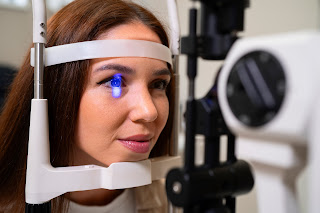In the quest for clearer vision, the field of ophthalmology has witnessed revolutionary advancements, and at the forefront of this optical evolution is Laser Vision Correction (LVC). This transformative procedure has liberated countless individuals from the shackles of glasses and contact lenses, offering them newfound visual freedom. Let's delve into the world of Laser Vision Correction to understand how it works and why it's becoming an increasingly popular choice for those seeking crystal-clear vision.
Understanding Laser Vision Correction
Laser Vision Correction encompasses various surgical procedures designed to correct refractive errors such as myopia (nearsightedness), hyperopia (farsightedness), and astigmatism. The most common types of LVC are LASIK (Laser-Assisted In Situ Keratomileusis) and PRK (Photorefractive Keratectomy).
The LASIK Advantage
LASIK is perhaps the most well-known and widely practiced form of Laser Vision Correction. This outpatient procedure involves reshaping the cornea, the transparent front part of the eye, using an excimer laser. During the surgery, a thin flap is created on the cornea, and the laser precisely sculpts the corneal tissue to correct the refractive error. The flap is then repositioned, acting as a natural bandage for the healing process.
The beauty of LASIK lies in its rapid results and minimal discomfort. Many patients experience improved vision almost immediately, with little to no pain during or after the procedure. Moreover, the recovery time is relatively short, allowing individuals to return to their daily activities promptly.
PRK: A Viable Alternative
While LASIK is popular, PRK is another form of Laser Vision Correction that offers a suitable alternative, especially for individuals with thinner corneas or certain corneal irregularities. In PRK, the corneal surface is gently reshaped without creating a flap. Although the recovery period for PRK is slightly longer compared to LASIK, it can be a preferable option in specific cases.
Criteria
Not everyone is a candidate for Laser Vision Correction. The eligibility for the procedure depends on various factors such as age, overall eye health, and the stability of the refractive error. A comprehensive eye examination and consultation with an experienced eye surgeon are crucial to determine suitability.
Life After Laser Vision Correction
For many, Laser Vision Correction opens a new chapter of life unencumbered by glasses or contact lenses. Activities like swimming, playing sports, or waking up with clear vision without reaching for glasses become a reality. The long-term benefits and cost savings associated with not purchasing and maintaining corrective lenses add to the appeal of LVC.
Considerations and Risks
While Laser Vision Correction has an excellent safety record, like any medical procedure, it carries some risks. It's essential to have realistic expectations and a thorough discussion with your eye care professional to understand the potential benefits and risks associated with the surgery.
Conclusion
Laser Vision Correction stands as a testament to human ingenuity in enhancing the way we see the world. With its precision, efficiency, and life-altering impact, LVC continues to evolve, offering individuals an opportunity to bid farewell to the limitations of glasses and contact lenses. If you're considering Laser Vision Correction, take the first step towards visual freedom by consulting with a qualified eye care professional who can guide you on this transformative journey to clearer, sharper vision.
THANK YOU,
FOR MORE DETAILS CONTACT US AT :
Work: +91 22 3556 9270
Cell: +91 9920442553
VISIT OUR WEBSITE: https://www.utsaveyeclinic.com/

Comments
Post a Comment